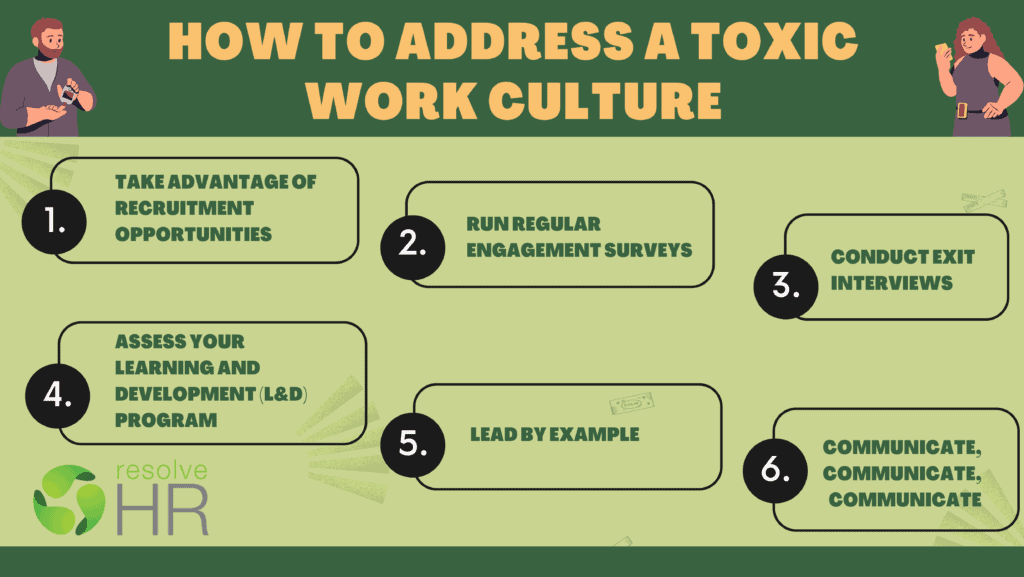
Last month we shared some advice on how to identify a toxic work culture which proved to be a popular topic amongst readers. This month we would like to share some easy and practical strategies that you can implement in your organisation to ensure your culture is thriving.
Take advantage of recruitment opportunities
It is critical to recruit to your values and have strong recruitment systems in place; make sure your organisation’s values are clear, ask the right interview questions and conduct robust applicant screening. Check out our blog on “Recruiting for the Ideal Team Player” for more guidance on this topic.
Run regular engagement surveys
We recommend doing engagement surveys every 6-12 months to obtain confidential qualitative and quantitative feedback from the team. Engagement surveys will help you uncover what your organisation is doing right, and what needs to improve. It’s a way of unpacking the good, bad and ugly internally in your organisation. A word of caution; if no action is taken post the survey and the key themes aren’t addressed, don’t expect high participation rates or valuable data in future surveys.
Conduct exit interviews
Departing employees offer valuable insights into the organisation’s culture and can provide suggestions for improvement. It is important to create a solutions-focused structure to these conversations by asking the right questions and creating a safe space for departing employees to be open and honest.
Lead by example
It is no secret that creating a positive work culture starts at the top. Leaders should reflect on how well they delegate, set expectations, and check-in with their teams. Playing favourites, exerting too much control, engaging in office politics, and not communicating clearly are some of the most common leadership complaints we hear when assisting clients with these matters.
Assess your learning and development (L&D) program
Having an aligned and accessible L&D program has a profound impact on work culture. Employees who feel they can grow in their roles, learn new skills and behaviours, and work towards a promotion will perform more effectively in their roles, demonstrate higher levels of loyalty and better support the organisation’s objectives. Fair and equitable access to L&D opportunities at all levels is another key ingredient to combating a toxic work culture. Having a bespoke design L&D program in your organisation is something to consider. We have recently been working with several clients to ensure a clear and defined a bespoke L&D program is in place.
Communicate, communicate, communicate
If you want to create a high-performing culture and hold onto your people, you need to know what is in their head and what is important to them. Make sure you are connecting with your employees on a regular basis and provide a clear and inspiring vision that your team can get behind.
Whilst these strategies are a great starting point, we understand that toxic work cultures can be challenging to address and take time to resolve. If you would like some assistance in improving your work culture feel free to contact us.
We wish you well on your culture journey. Our team is here to support you! 😊
Nick Hedges is the founder of Resolve HR, a Sydney-based HR consultancy specialising in providing workplace advice to managers and business owners. He recently published his first book, “Is Your Team Failing Or Kicking Goals – Take Control of Your People and Their Performance”. It is a practical response to the most pressing HR challenges facing SME organisations, which can be found at https://resolvehr.com.au/.
Disclaimer: The contents do not constitute legal advice and does not cater for individual circumstances. The information contained herein is not intended to be a substitute for advice and should not be relied upon as such.
